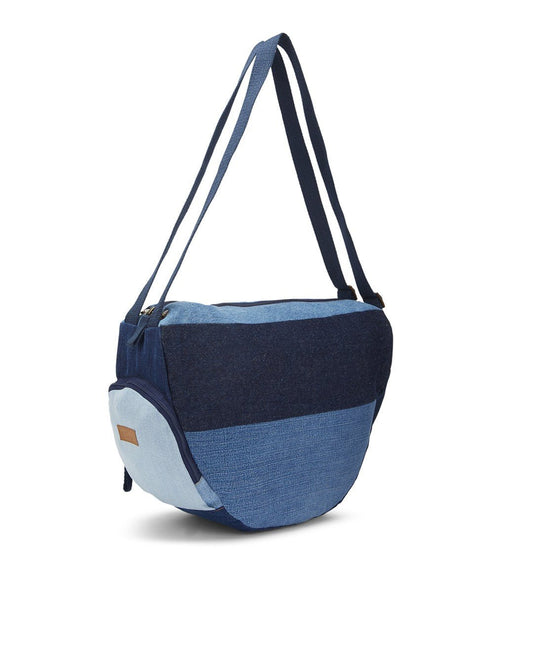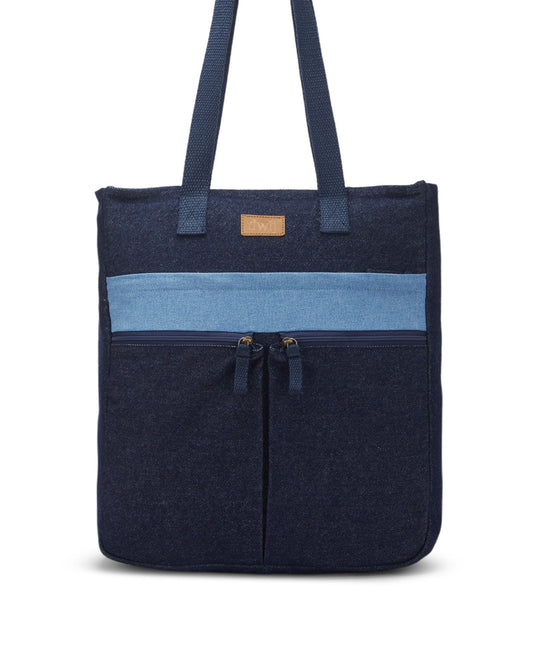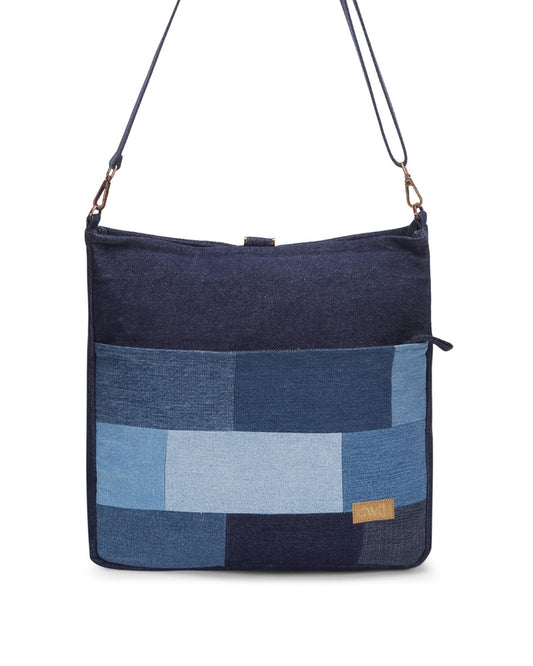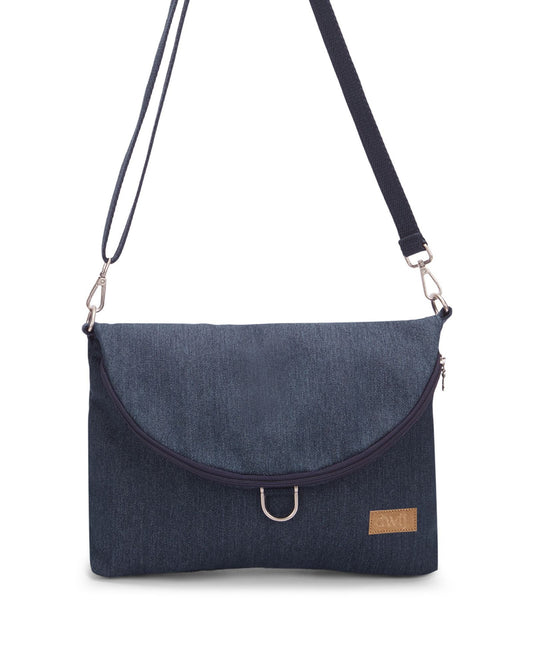Dwij, a startup from India is making textile waste non-existent in fast fashion by creating sustainable essentials. And this startup, based on the fundamentals of upcycling, is revolutionizing how we think about waste in fashion.
The Textile Waste Crisis: A Hidden Problem
2nd to China, India is the second largest textile-producing country responsible for generating a massive 1 million tons of textile waste each year. Unfortunately, a huge part of this waste ends up in landfills which causes natural degradation and pollution. 10,000 liters to make a pair of jeans and then there is water wastage. The consumption of those resources at that volume has led to an acute need for change.
Dwij Mission: Giving Denim a Second Life
Dwij, meaning 'second life' in Sanskrit is set up with a mission to create value out of waste and its first solution focuses on upcycling denim. The fabric, denim, one of the most resource-heavy fabrics, is turned into Dwij canvas for change.
Dwij is turning old jeans into beautiful bags, backpacks, and accessories by using your discarded denim from home as well as factories and organizations. Every piece is thoroughly designed, telling the story of fashion and beauty re-imagiined eco-friendly.
Impact by the Numbers: Upcycling Revolution in Action
Dwij Is Making An Impact That Goes Far Beyond Fashion As of now, the startup has reclaimed over 2000m of denim saving hundreds and thousands of liters of water annually while ensuring these textile surpluses do not clutter landfills. Dwij appeals to our conscious consumer in style by perpetuating slow fashion and craft designs that are iconic styles with high quality.
Dwij is not only cutting out waste—but, in some cases, helping consumers reduce their carbon footprint. When consumers purchase upcycled products, they assist in reducing GHGs associated with the production and disposal of new textiles.
Empowering Local Communities in the Upcycling Revolution
But the mission of Dwij is not only environmental but it is also social. The brand offers employment and empowers communities, supporting skill-building initiatives with local artisans/NGOs. By infusing age-old Indian techniques into contemporary designs, Dwij ensures that a part of our heritage remains up and artists keep their means of livelihood.
Driving Consumer Awareness: A Movement for Change
Rallying against the buy, wear, dispose of culture. “Our main focus is to educate consumers,” Dwij said. Their marketing angle is eco-friendly with slogans like 'Buy Less, Choose Well, Make It Last' endorsed in their campaigns; urging customers to consider longevity and environmental awareness when buying.
By working with other eco-conscious brands and influencers, Dwij continues to foster a group of consumers who identify with slow fashion—an approach that focuses on durability over trendiness.
The Future of Upcycling: What’s Next for Dwij?
Dwij is not stopping at just denim from his ambition. Their vision? Our vision is to change how India deals with its textile waste crisis, hence envisaging upcycling as the prospective future of fashion.
Such an approach could spark a game-changing shift toward sustainability for consumers and brands in a country that currently dumps 85% of its textile waste into landfills.
Join the Upcycling Revolution
Dwij isn't just a product, it's a movement. Each product from Dwij tells a tale of change, sustainability, and upliftment. When you select upcycled goods, you support the reduction of textile waste, saving on resources, and fostering an ethical way of fashion.






